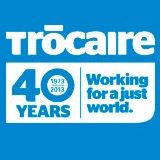
By Ann Marie Foley - 25 August, 2014

One hundred and ten farmer families who were violently evicted from their land in north-eastern Guatemala have been re-located by the Guatemalan government.
The families, numbering 525 women, men and children, have moved with their belongings, including animals and cats, to Sactelá, Cobán as part of a measure put forward by the Inter-American Commission of Human Rights (ICDH).
Trócaire has cautioned that this “small victory” in ensuring human rights has been marred by the fact that the families who arrived in their new homes found that government commitment of providing toilets, a potable water system and road access were not fulfilled.
This worries Trócaire, and other organisations including the Office of the High Commissioner for Human Rights of the United Nations in Guatemala, who will continue to work to improve the situation and put pressure on the government when necessary.
Representatives of these organisations accompanied the families on their 12-hour journey to Sactelá in solidarity and to observe the process organised by the Guatemala government.
Oscar Cucul, spokesperson for the 110 families, spoke of the sadness of leaving the area in which they were born to move to a completely new community.
He also reminded the government “that over 500 families that were evicted are still in need of land where to live”.
The “government should favour the families from the Polochic and not the large businesses of sugar cane and African palm”, he said.
These farming families were evicted in March 2011 in the Polochic Valley and Trócaire has been helping 700 families along with their local partner organisation Fundación Guillermo Toriello.
They have supplied emergency support such as food, medical provisions, temporary shelter and helped in the construction of houses for 125 families.
Trócaire along with other civil society organisations has been helping to lobby the Guatemalan government to ensure families are provided land and dignified living conditions.
For several months before re-location, meetings took place between community leaders and government institutions such as the Human Rights Office and the ministries for Transport, Water Supplies and Health to ensure that government committed to providing a minimum of basic services.

The Polochic Valley is a fertile stretch of land in north-eastern Guatemala, 50km from the Caribbean coastline.
During the last few years there has been a rapid expansion of sugar cane and African Palm by large land owners and multinational companies.
This has caused: increased land prices for purchase and rental (families who cannot afford to buy often rent or pay rent with the harvest of maize); more use of agro-chemicals; and violent evictions of the local people involving the military, police and private security firms.
Trócaire has highlighted the impact of large scale production of such monocrops for the exportation and use as agro-fuel in its campaign Food Not Fuel.
A documentary made with Irish actor Aiden Gillen, who visited to the Polochic Valley, also highlighted the issue and was nominated for the Irish Council for Civil Liberties Human Rights Film Award.
Oxfam has reported that globally demand for land has soared as investors look for places to grow food for export, grow crops for biofuels or simply for profit.
“But in many cases land sold as ‘unused’ or ‘undeveloped’ is actually being used by poor families to grow food. These families are forcibly kicked off the land. Promises of compensation are broken,” Oxfam stated.
While Oxfam (like Trócaire) has had some success in helping such families, it has suggested that global action is necessary, and Governments need to provide access to land for smallholder farmers.
Biofuels strategies need to be given serious thought, and consider how land used for fuel for people’s cars is taking food from people’s plates.
500,000 small-scale farms around the world are helping to put food on the plates of two billion people – or one in three people on earth, Oxfam stated.